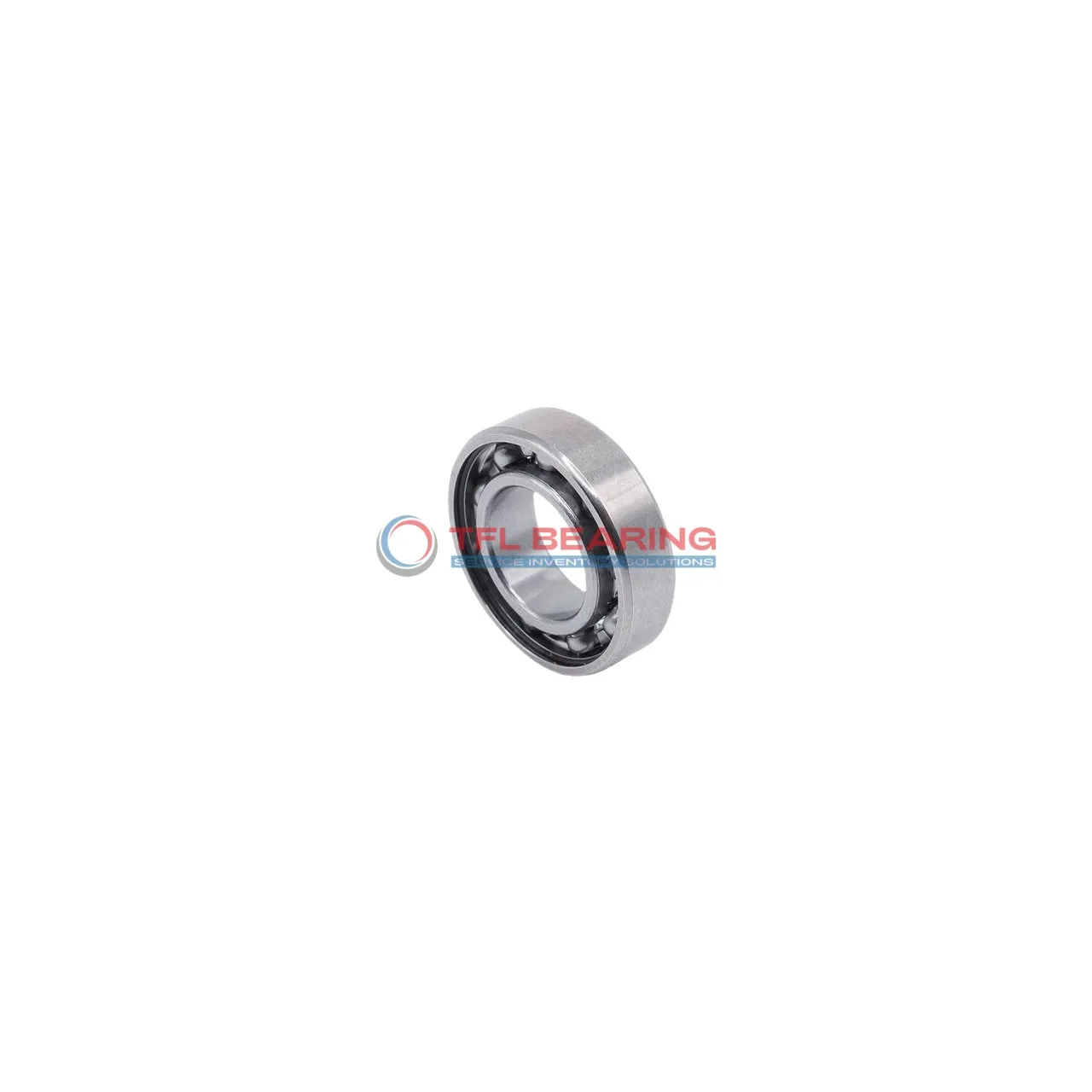
The S6902 is a slim radial ball bearing measuring 15mm by 28mm by 7mm, crafted entirely from stainless steel for durability. It supports radial loads up to 876 lbf and can spin at speeds up to 21,600 RPM.
Its open design simplifies lubrication, while the ABEC-1 tolerance ensures reliable performance for general applications. The bearing operates smoothly in temperatures ranging from -86°F to 230°F.
Weighing just 9 grams, it’s a lightweight choice for compact spaces. Ideal for use in small machinery or medical devices where precision and space-saving are key.
Compliant with RoHS and REACH standards, it’s a safe and versatile option for various industries. The C0 radial clearance provides a balance between smooth rotation and load handling.
"*" indicates required fields
Performance Features of S6902 Bearing
S6902 Bearing is crafted with stainless steel rings and balls, offering excellent resistance to corrosion and wear.
Its slim 7 mm width makes it ideal for applications where space is limited.
The ABEC-1 tolerance ensures reliable performance, while the C0 radial clearance provides smooth operation.
With a maximum speed of 21,600 rpm, it delivers efficiency in high-speed radial load applications.
How Does S6902 Bearing Reduce Friction?
S6902 Bearing’s stainless steel construction minimises friction, ensuring smooth rotation under radial loads.
The single-row design and open seal type help maintain consistent performance with proper lubrication.
Its dynamic radial load capacity of 876 lbf makes it suitable for various industrial uses.
The bearing operates efficiently within a wide temperature range of -86 to 230 °F.
Designed for Durability: S6902 Bearing
S6902 Bearing’s all-stainless steel build enhances its longevity and resistance to harsh environments.
The precise 15 mm bore and 28 mm outer diameter ensure a snug fit in compact assemblies.
Weighing just 9 g, it combines lightweight design with robust performance.
Its static radial load capacity of 455 lbf ensures reliability in diverse applications.
Steel vs Ceramic Bearings: Strengths of S6902 Bearing
S6902 Bearing’s stainless steel material provides a cost-effective yet durable alternative to ceramic bearings.
It excels in environments where corrosion resistance and moderate load capacity are key.
The bearing’s thin section design saves space without compromising on performance.
With a max speed of 21,600 rpm, it is well-suited for high-speed machinery.
Why Choose S6902 Bearing for Precision Tasks?
S6902 Bearing’s ABEC-1 tolerance and C0 radial clearance ensure precise and consistent operation.
The open seal design allows for easy lubrication, maintaining smooth performance over time.
Its lightweight construction reduces inertia, making it ideal for precision instruments.
The bearing handles dynamic radial loads up to 876 lbf, offering versatility in various applications.
Industrial Uses of S6902 Bearing
S6902 Bearing is commonly used in precision machinery like CNC routers, where its slim 7mm profile fits into tight spaces without compromising performance. The stainless steel construction ensures durability in humid or corrosive environments.
What Makes S6902 Bearing a Preferred Choice?
In robotics, S6902 Bearing excels in joint mechanisms due to its low friction and smooth rotation. Its ABEC-1 tolerance provides reliable accuracy for repetitive movements in automated systems.
Perfect Fit for Automation: S6902 Bearing
S6902 Bearing works well in 3D printers, supporting linear motion rails with minimal vibration. The open design simplifies relubrication during routine maintenance checks.
Medical vs Industrial: Where S6902 Bearing Excels
For medical devices like dental handpieces, S6902 Bearing offers quiet operation essential for patient comfort. In packaging machines, it handles moderate radial loads at high speeds efficiently.
Light-Duty vs Heavy-Duty: Best Uses for S6902 Bearing
S6902 Bearing suits small appliances like cooling fans due to its lightweight 9g design. For industrial sensors, it provides stable rotation in measurement equipment.
"*" indicates required fields